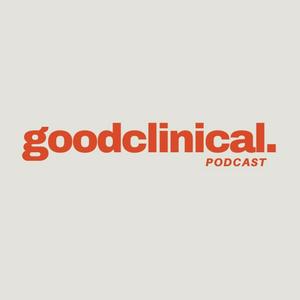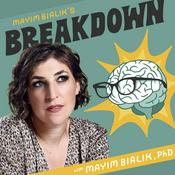44 episodes

Ep 43 - A/Prof Rodger Tiedemann - NZ's Medicines Deficit: Why are Kiwis Missing Out?
20/1/2025 | 42 mins.
In this weeks episode I sit down with A/Prof Rodger Tiedemann, a Consultant Haematologist, A/Prof of Medicine, Researcher, and advocate for medicines access and clinical trials in New Zealand.We begin by chatting about Rodgers involvement in multiple myeloma research and the treatment landscape, and how targeted therapies have improved survival rates for this type of cancer.We then centre the discussion on the challenges facing New Zealand's healthcare system, particularly in terms of access to modern medicines and clinical trials.New Zealand's funding for medicines is significantly lower compared to other countries with comparative GDPs, and we have a large 10 year deficit in access to new cancer treatments for Kiwi patients.For example, we rank 30th in GDP per capita from 218 countries. By this measure of national income, we fall between Germany and the UK, and ahead of France, Italy and Japan. However, while those countries each reimbursed 119-165 new medicines between 2016-2021, New Zealand reimbursed only 17... This lack of access also impacts clinical trial availability, as trials often require patients to have already received standard-of-care treatments, which may not even be funded yet in New Zealand. Consequently, pharmaceutical companies are less inclined to bring clinical trials to NZ, further limiting options for our patients. So what needs to be done to fix this? A significant frameshift in drug funding is critical for NZ. The valuation and budgeting of healthcare, increased funding for medicines, and the understanding of how this would benefit the NZ economy due to second- and third-order effects of new medicines (I.e., lower healthcare spending, faster time returning to work etc.). This would not only improve patient outcomes but also attract more clinical trials, which could also bring economic benefit.You can find out more about A/Prof Rodger Tiedemann here:https://www.linkedin.com/in/rodger-tiedemann-a2306580/ 𝐑𝐄𝐋𝐀𝐓𝐄𝐃 𝐊𝐄𝐘𝐖𝐎𝐑𝐃𝐒:- cancer treatment, blood cancers, multiple myeloma, immunotherapy, medicine access, New Zealand healthcare, clinical trials, haematology, cancer research

Ep 42 - Professor John Windsor - From Concept to Clinic: Innovating Post-Surgical Recovery
18/12/2024 | 41 mins.
Good Clinical has teamed up with Te Titoki Mataora, the MedTech Research Translator, to bring you the Te Titoki Mataora Podcast Series.In this episode meet Professor John Windsor, a Consultant Surgeon, Professor of Surgery, and Director of the Surgical & Translational Research Centre at The University of Auckland. Our conversation focuses on the development of the Limpet drainage device at AperCure Surgical, a research-focused company aiming to commercialise radiological and surgical drain devices.The Limpet device has been designed to overcome the problems that stem from the discomfort and risks that patients face when standard percutaneous drains are used post-surgery. Typically, these drains, secured with stitches to prevent dislodgement, cause discomfort and pain, and if they come loose, it requires another procedure to reinsert them.The Limpet device aims to offer a more secure and comfortable alternative to traditional post-surgical drainage methods. We talk about how the device uses flexible materials that conform to the body, making it easier for patients to lie on and reducing discomfort during recovery.A key innovation is that the device also protects the drain's path, minimising the risk of snagging, kinking, or compression, which can lead to further complications. The product also focuses on making it easier to care for the wound site, thus reducing the risk of infections and improving the overall patient experience during recovery.You can find out more about Professor John Windsor here:https://www.linkedin.com/in/john-a-windsor-013b9725/Podcast Takeaways:Prof John Windsor has had an extensive career in medicine, surgical practice, academics, and Med Tech. His experience has driven him to focus on improving patient care, particularly addressing issues with surgical procedures and post-operative recovery. He discusses his transition into the field of medical innovation, where his interest in solving real-world clinical problems led to the development of medical devices aimed at improving patient outcomes.We talk about how certain unmet clinical needs, particularly in surgical drainage, prompted the development of the Limpet device. Surgeons noticed the discomfort and complications caused by traditional drainage methods, which led to research and innovation aimed at improving patient care. The Limpet device is undergoing trials in volunteers to ensure that it meets the standards required for later-phase trials and routine clinical use.We chat about the importance of collaboration between surgeons and engineers in the development of medical devices. Surgeons bring practical, real-world clinical knowledge, while engineers provide the technical expertise to design solutions that address the specific challenges faced by patients and healthcare providers.We also discuss the evolution of surgery from open procedures to minimally invasive techniques like laparoscopy. Laparoscopic surgery allows for smaller incisions, faster recovery times, and reduced risks of infection, marking a significant shift in surgical practices.Timestamps:00:00 Introduction02:49 The Journey from Surgery to Research06:10 The Evolution of Surgical Techniques08:54 Translational Research and Clinical Observations12:00 Innovative Approaches to Organ Failure14:50 Developing the AperCure Limpet Device26:33 Clinical Trials and Product Development31:35 Business Considerations in MedTech37:11 Future Directions and Advice for Innovatorsmedtech, surgical research, translational research, innovation, clinical trials, organ failure, bioengineering, medical devices, entrepreneurship, healthcare, surgery, surgical care

Ep 41 - Dr Patrick McHugh - Heart Rate Variability and its Role in Mental Health
09/12/2024 | 35 mins.
Good Clinical has teamed up with Te Titoki Mataora, the MedTech Research Translator, to bring you the Te Titoki Mataora Podcast Series. In this latest episode meet Dr Patrick McHugh, a general practitioner located in Tairāwhiti, Gisborne.Patrick plays a role in several different organisations including Te Whatu Ora Tairāwhiti, Mātai Medical Research Institute, and the iwi health provider Turanga Health, where he's involved in a project exploring a heart-based mindfulness approach to assist individuals to manage their anxiety and improve their mental health.Our conversation focuses on heart rate variability (HRV), where studies have demonstrated that a low HRV is associated with aging and a decline in health. HRV measures the variability in the time between heartbeats, and higher variability is associated with better health and resilience, both physical and mental.HRV can be analysed to give an indication of activity in the sympathetic nervous system as a proxy marker for degrees of stress. Heart-based mindfulness practices, which involve techniques such as developing an observer state and using the heart as a centre of consciousness, aim to increase HRV and improve emotional regulation.Podcast Takeaways:Patrick's project with Turanga Health aims to assess the effectiveness and acceptability of a heart-based mindfulness intervention for adults with anxiety disorders in primary healthcare settings.HRV is a key measure of health, particularly mental health. Higher HRV is linked to better adaptability and emotional resilience, while low HRV is often associated with stress, anxiety, and poor mental well-being.The heart and mind are deeply interconnected, and heart-based mindfulness practices can help regulate emotional states by increasing HRV, leading to better mental and physical health outcomes.HRV can be used as a proxy to measure the balance between the sympathetic (stress) and parasympathetic (calm) nervous systems, providing insights into an individuals stress levels and emotional health. Timestamps:00:00 Introduction01:11 Dr. Patrick McHugh's Background and Roles01:43 Understanding Heart Rate Variability06:37 The Connection Between Heart and Brain08:47 The Importance of Mindfulness 10:28 Impact of Mental Health12:06 Research on Heart Rate Variability and Mindfulness15:02 Heart-Based Mindfulness Approach18:30 The Integration of Medicine and Mind-Body Connection21:52 Future Project Prospects & Group-Based Interventions28:43 The Importance of Human Interaction for Mental Health32:34 Future Research Directions and Projects

Ep 40 - Dr Jo Nunnerly | Utilising Virtual Reality for Traumatic Brain Injury Rehabilitation
30/11/2024 | 35 mins.
Good Clinical has teamed up with Te Titoki Mataora, the MedTech Research Translator, to bring you the Te Titoki Mataora Podcast Series.This weeks guest is Dr Jo Nunnerley, a physiotherapist and researcher based at the University of Otago. We chat about Jo's development of a virtual reality tool for supporting individuals with traumatic brain injury (TBI), a project supported by Te Titoki Mataora.Jo and her team have developed the tool alongside expert clinicians, physiotherapists, and individuals who have experienced TBI. The tool, set in a simulated café environment, helps patients practice navigating real-world social situations while identifying and managing fatigue and memorisation. Jo also talks about her personal experience of stroke, the commercialisation journey of the project, future plans to incorporate AI, and the importance of collecting biometric data to enhance the tool’s functionality.You can find out more about Dr Jo Nunnerley here:https://www.linkedin.com/in/jo-nunnerley/Podcast Takeaways:Traumatic brain injury affects up to 36,000 New Zealanders per year, ranging from a mild brain injury such as concussion, to more severe cases.Jo’s personal experience as a stroke survivor brought crucial insight into how fatigue can impact recovery and rehabilitation. The VR tool provides patients with a realistic, relatable environment for practicing social interactions and managing fatigue, which can be difficult to replicate in traditional clinical settings. Collaboration with individuals who have lived experience of TBI has been essential in creating a more effective and user-centred rehabilitation tool. The project is moving toward further development with plans to enhance the tool by incorporating AI, heart rate monitoring, and eye-tracking technology to better assess and support patient progress. The next steps include conducting larger clinical trials and introducing the tool into clinical care in New Zealand, with the potential to expand globally.Timestamps:00:00 Introduction to TBI05:50 Current TBI management regimes and inequities09:52 Jo's VR tool for TBI rehabilitation and how it works22:10 Jo's personal experience with stroke26:43 Developing the VR tool alongside TTM support32:10 Next steps for the VR project▶️ 𝐑𝐄𝐋𝐀𝐓𝐄𝐃 𝐊𝐄𝐘𝐖𝐎𝐑𝐃𝐒:- Traumatic Brain Injury, Virtual Reality, Rehabilitation, Fatigue Management, Clinical Trials, HealthTech, New Zealand, Patient Care, Innovative Technology, Neurology

Ep 39 - Dr Robin Whittaker | From Ideas to Impact: Building New Zealand's MedTech Ecosystem
25/11/2024 | 35 mins.
Good Clinical has teamed up with Te Titoki Mataora, the MedTech Research Translator, to bring you the Te Titoki Mataora Podcast Series.In this episode meet Dr Robyn Whittaker, the Director of Research Evidence and Clinical Trials at Te Whatu Ora, Health New Zealand.Our discussion focuses on Robyns involvement in Te Titoki Mataora and TTMs key role in fostering MedTech innovation in New Zealand. We talk about the challenges and opportunities of translating ideas into real-world medical solutions, with TTM providing essential support through funding, expert networks, and collaboration between clinicians, researchers, and industry partners.While New Zealand may not have the same financial resources as other countries, we discuss how a combination of resourcefulness, strong partnerships, and a focus on practical outcomes allows NZ to make significant impact in the MedTech space.Podcast Takeaways: Te Titoki Mataora plays a critical role in supporting MedTech innovation in New Zealand by providing funding, networks, and partnerships to help translate ideas into practical healthcare solutions.A key initiative is the clinical experience program, where postgraduate students shadow clinicians to identify real-world healthcare challenges and develop solutions, bridging the gap between research and clinical practice.The conversation highlights the importance of creating a supportive ecosystem that allows innovators to learn from failures and build future successes, even if their first ideas aren't viable.A challenge discussed is securing funding for the next stage of development, especially for scaling projects beyond New Zealand's small market and attracting international investment.Collaboration is Key! Partnerships between researchers, clinicians, industry, and government are crucial in maintaining New Zealand's momentum in MedTech innovation, despite limited resources compared to larger countries.Timestamps:00:00 Introduction and Overview03:57 Robyns Background08:50 The Realm of Clinical Trials in NZ12:45 Introduction to TTM and Robyns Involvement17:25 NZ's Position in MedTech25:43 Envisioning NZ's Future27:49 Challenges in The Current MedTech Ecosystem
More Health & Wellness podcasts
Trending Health & Wellness podcasts
About Good Clinical
Listen to Good Clinical, The High Performance Podcast and many other podcasts from around the world with the radio.net app

Get the free radio.net app
- Stations and podcasts to bookmark
- Stream via Wi-Fi or Bluetooth
- Supports Carplay & Android Auto
- Many other app features
Get the free radio.net app
- Stations and podcasts to bookmark
- Stream via Wi-Fi or Bluetooth
- Supports Carplay & Android Auto
- Many other app features


Good Clinical
download the app,
start listening.




































